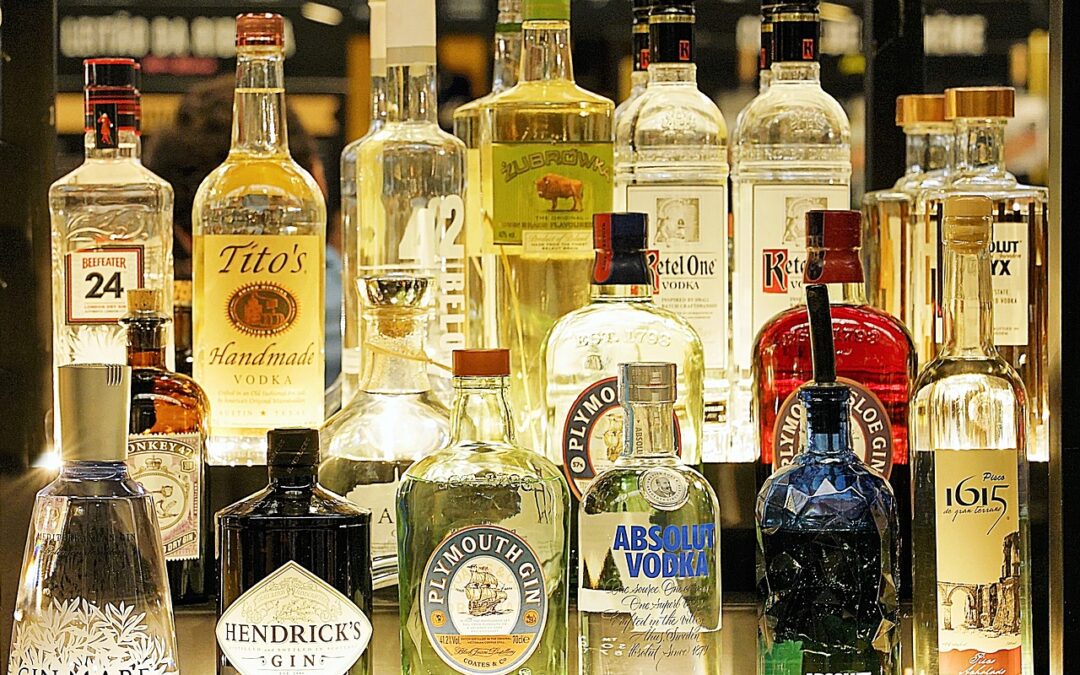Poles spent a record 39 billion zloty (€8.7 billion), or roughly 1,250 zloty per adult, to buy alcoholic drinks over the past year. However, the volume of alcohol sold dipped slightly, by 1%, highlighting that Poles have moved towards more expensive tipples.
The data come from Nielsen, a market research company, which found that Poles spent 2.5 billion zloty more on alcohol between November 2019 and October 2020 relative to the same period a year earlier, reports Gazeta Wyborcza.
Spirits, including rum, gin, tequila and whisky, have all seen a big rise in sales, but cider continues to lose market share to the cheaper substitute of flavoured beers. Separately, non-alcoholic beer sales have continued to grow rapidly.
Beer remains king
Beer remains the drink of choice, with a sales value of 18 billion zloty (€4 billion) in the past year – almost half of all spending and a 3% annual increase.
Bartłomiej Morzycki, head of the Union of Brewing Industry Employers (Browary Polskie), however, suggests that the increase was down to the pre-pandemic period included in the data.
He notes that in the first three quarters of 2020, beer production was down 2.5%, while in the third quarter the drop reached 7.3%. A number of smaller breweries have relied on crowdfunding to stay afloat.
Sales of non-alcoholic beer have, however, continued to grow rapidly, notes Gazeta Wyborcza. They reached 1 billion zloty in the year analysed by Nielsen.
A separate report by Kompania Piwowarska, a brewing group, found that alcohol-free beer sales have grown 20.5% this year, and now account for 5.9% of the market by value, notes Rzeczpospolita.
Whereas in the past non-alcoholic beer was considered a more feminine drink, three-fifths of drinkers are now men, according to a market survey reported by Super Express. The main motivations cited by drinkers are pleasure (73%), health (56%) and the inability to consume alcohol (55%).
Hard numbers
Behind beer, vodka remained the most popular alcoholic drink, with sales of 13.3 billion zloty. Premium brands have been particularly popular this year, as have larger bottles of spirits, sales of which grew by 5% in the first half of 2020, according to Rzeczpospolita.
“[This] was mainly due to increased purchases at the beginning of the first lockdown: people in a frenzy of stockpiling took a large bottle of vodka ‘just in case’,” Witold Włodarczyk, head of the Polish Spirits Industry employers association, told Gazeta Wyborcza.
“When making such purchases, consumers are guided mainly by the brand’s reputation, hence the positive trend for premium vodkas,” he adds. “On the other hand, flavoured vodkas and vodka in small bottles sold slightly worse than before the pandemic.”
The trend towards more expensive spirits was also seen in other parts of the sector too: sales increased by 37% for rum, 30% for gin, 26% for tequila and 20% for whisky, according to Anna Anasik from Nielsen Connect.
Cider losing out
Sparkling wines have been the fastest-growing segment of the wines market, with sales increasing by 16% this year. This was mostly thanks to Italian prosecco, sales of which rose by 26%.
By contrast, sales of cider dropped by 16%, falling to 50 million zloty over the year. According to producers quoted by Gazeta Wyborcza, cider is losing out against flavoured beers, which many consumers see as a cheaper substitute.
One reason for this is that cider is taxed at a higher rate than beer. In 2018, Prime Minister Mateusz Morawiecki promised to lift excise tax from cider. However, this policy has yet to be implemented.
Another problem for the industry is that cider, unlike beer, cannot be advertised in the media. The previous government promised to lift this ban but failed to do so. The current government also rejected a proposal to end the advertising prohibition.
Cider and perry are excluded from the tax rise in order to support domestic fruit production.
Poland is the EU's biggest apple producer, but cider has struggled to enter the market due to regulatory and tax hurdles https://t.co/yu4rg4qPuX
— Notes from Poland 🇵🇱 (@notesfrompoland) December 28, 2019
Main image credit: RichardMc/Pixabay (under Pixabay License)

Maria Wilczek is deputy editor of Notes from Poland. She is a regular writer for The Times, The Economist and Al Jazeera English, and has also featured in Foreign Policy, Politico Europe, The Spectator and Gazeta Wyborcza.




















